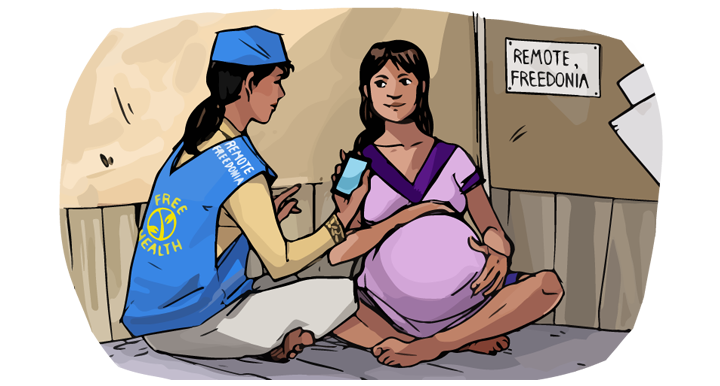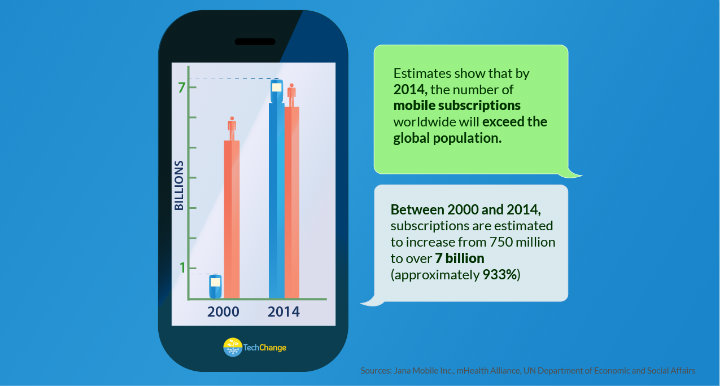Mobile phones are more than just communications devices; they are also powerful tools to improve health care. Since 2012, TechChange and the mHealth Alliance have offered a four-week online certificate course in mHealth: Mobile Phones for Public Health.
Our mHealth course has brought together an incredible group of roughly 100 doctors, community health workers, academic researchers, IT administrators, and government officials from over 35 countries to share knowledge. Each time we do the course, we’ve been amazed at how mHealth has advanced global health.
Here are the three key mobile innovations changing the delivery of health care services that we’ll cover in our next course, which starts on November 18th.
1. Text Messages for Pregnant Mothers

Nearly 800 women die of childbirth or pregnancy-related complications every day, and 2.9 million newborn deaths occur every year. At the same time, at least 1 billion women in low- and middle-income countries own mobile phones, providing a promising opportunity to use mobile phones to improve maternal and child health. On Mother’s Day 2011, former U.S. Secretary of State Hillary Clinton launched the Mobile Alliance for Maternal Action (MAMA), a public-private partnership between USAID, Johnson & Johnson, the mHealth Alliance, the United Nations Foundation, and BabyCenter.
MAMA message templates can be downloaded for free, which means any organization can take advantage of this content to prepare pregnant mothers for childbirth. In our online course, we’ll learn how to customize these messages for different contexts and help participants determine what technical platforms are best for delivering these messages. SMS technical platforms we plan to feature include FrontlineSMS, Telerivit, Voto Mobile, EngageSpark, and Textit.
2. Support for Community Health Workers
A recent report by Dalberg found that Sub-Saharan Africa will need to train more than 1 million additional community health workers to keep up with health care demands. Medic Mobile and Last Mile Health are two organizations working to provide training to community health care workers in countries like Liberia and Malawi. They have teamed up to create a mobile network for a district in Liberia and to design a mobile application that will dramatically improve community health care worker training and management. This mobile app will also improve community health care worker communication with clinicians based in health facilities. The mobile platform will also include automatic data collection and a reporting system that will create stronger, more efficient systems to manage patient records and monitor data quality.
Learn about how these organizations are using mobile technology to provide training for community health care workers and what other technologies and strategies organizations can use to provide similar support to marginalized populations. As part of the mHealth course, we’ll feature workshops with some of the leading software platforms for data collection and patient management, including CommCare and Magpi.
3. Moving Beyond the Pilot Phase
In recent years, a great deal of mHealth projects have entered the pilot phase, but few have gone on to reach scale. Among those that have scaled are Ureport, an SMS-based civic engagement platform based in Kenya, and Project Mwana in Zambia, which works to increase the testing and treatment of infants born with HIV. These projects show that with adequate preparation and when designing with scale in mind, it is possible to move beyond the pilot stage and increase the reach of mHealth programs.
However, sometimes barriers to scale can come from funders’ reluctance to support scaling programs rather than funding new and innovative ones. In our online mHealth course, we will look at strategies to get beyond scale, including human-centered design, working with funders, and learning from past mistakes.
We hope you decide to join us and meet all kinds of professionals from around the world working in the field of mHealth. Don’t miss out on what will be a great course!
Join this global mHealth learning community by signing up for the course today.



